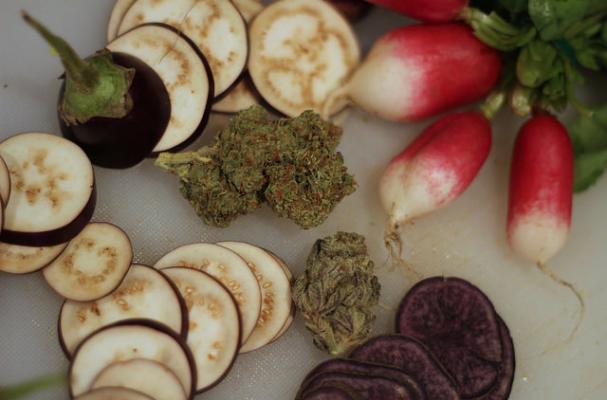Let’s start with some obvious but perhaps under reported facts: Legal marijuana is an enormous industry, estimated to be worth about $7 billion per year; its popularity is only growing among future consumers; it is currently legal for recreational use in 4 states (CO, WA, OR, and AL), on the ballot for legal recreational use in 4 more, and medically sanctioned in another 21. In Colorado, edible cannabis products account for $1 billion per year; and marijuana, in all of its forms, induces the appetite.
The sum total of all these facts? As more states legalize cannabis products, the food industry stands to make some serious green, and some of its craftiest entrepreneurs have already gotten started.
Marijuana Restaurants: A Hybrid of Law and Practice
Absent federal sanction, legalization has occurred in a state-by-state process that has led to several risky but potentially rewarding legal gray areas. “It’s a very fragmented industry from state to state,” observed one entrepreneur. “The laws are different, the businesses are different, the methods that they use to grow are different.” For instance, it is legal to purchase and partake in marijuana in Colorado but it is illegal for Colorado’s restaurants and hotels to serve it.
This has led to some curious practices. Take Denver’s Hapa Sushi, which suggests dishes to pair with certain marijuana strains (they say the Pakalolo Shrimp goes quite nicely with Pakistani Kush). Customers don’t buy or consume cannabis on-site, but the pairing menu—combined with anti-paranoia architecture, music, and seating—allow the restaurant to distinguish itself by catering to the already inebriated. And if/when Colorado permits consumption within restaurants, Hapa will have already established itself among this crowd.
Such pretense can be abandoned in Washington, where laws permit consumers to consume publicly on private property. Seattle’s MagicalButter was the first brick and mortar restaurant to take advantage of this in 2014, offering an all-cannabis infused menu (it’s in the oil, butter, and cheese) with such familiar offerings as grilled cheese and pulled pork sandwiches. Their food costs about $10 more on average than a typical restaurant.
Of course, there are some pretty valid medical concerns that come with legalization. Some restaurants have opted to act vs. react. For example, MagicalButter keeps a medical expert on hand to advise customers, who control exactly how much THC ends up in their dish down to the milligram. “We have to work on [these things] to make sure no one has an experience they’re uncomfortable with,” assured owner Garyn Angel.

Sparking Sales: We’re Going to Need More Ice Cream
Legalized recreational marijuana stands to directly and indirectly impact restaurant sales. Directly, depending on local and state laws, restaurants can follow MagicalButter’s lead and sell marijuana-infused products to consumers on premises. Because less prized portions of the marijuana plant can be utilized to create edibles, the markup and profit margin on such items is incredibly high. Higher scale restaurants could even offer a potent amuse bouche or aperitif and then watch the diners order pricy items to satisfy a hunger that never seems to ebb.
Which leads us to how restaurants can profit indirectly: through the most famous of marijuana’s side effects, the munchies. “An increase in appetite is a common side effect of smoking pot and because of this I can really see it benefiting the [restaurant] community,” hoped one San Diego restaurateur. A Denver-area sub shop owner concurred, noting that since legalization, “We’re selling more dessert and cookies and we’ve started selling pints of ice cream.”
While we have seen the munchy demographic targeted in food advertising before, it has always been with a wink and a nod. Recreational legalization would allow restaurants to explicitly market their food to their “hungriest” consumers.
The Waiting Game
Granted, such establishments would only be operable in states where recreational legalization has occurred, meaning some entrepreneurs are already planning, investing, and in some cases building their operations without legal sanction.
They are already ahead of the (admittedly dangerous) game. MagicalButter’s Garyn Angel plans to set up shop in Los Angeles “the very second” there’s a legal opportunity there: “We’ve made a lot of capital investments to prepare for pending legislation.” The risk of depending on legislation, of course, is that it may not pass.
But that has not deterred Chris Sayegh. The 23-year-old chef makes five star meals with marijuana that he incorporates into his LA-area catering business, working banquets and private dinners. Sayegh includes it in both sweet and savory dishes (like a marijuana and red wine reduction) and has built out menus through trial and error.
If legalization comes, it will find him well prepared. If it does not, it could ruin him. Nobody said it was easy being first.


